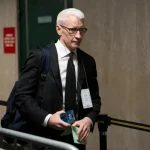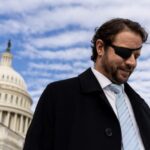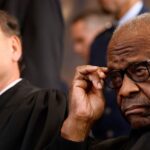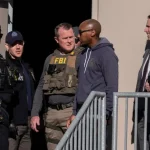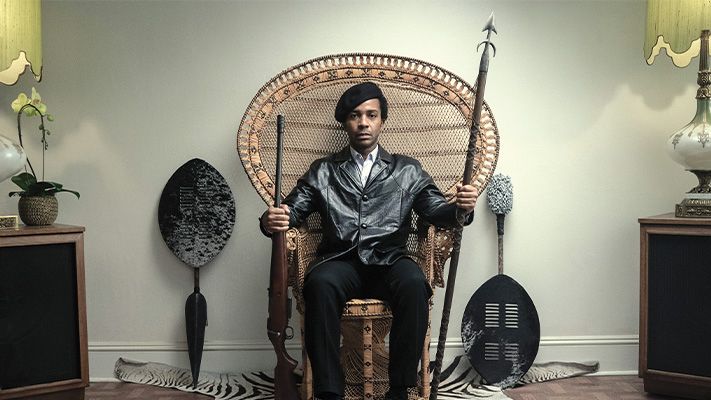
In late 1977, in the days before he suborned mass suicide in a Guyanese jungle, the Rev. Jim Jones tried to buoy the sagging spirits of his 900-plus homesick parishioners with a series of celebrity guest appearances, patched into the Jonestown encampment through a dodgy phone connection and an even dodgier PA system. Before migrating to South America — Jonestown was supposed to be a way station on route to the Soviet promised land — Jones operated the People’s Temple church out of San Francisco, where he accumulated political influence with terrifying ease and charmed local progressive stars like future Mayor Willie Brown, Angela Davis, and, from a remove of mutual admiration, Black Panther co-founder Huey Newton. “I want the Guyanese government to know that you’re not to be messed around with,” Newton said to the adherents of the Peoples Temple down a crackling phone line. “Keep strong and we’re pulling for you.”
A handful of months later, Jones finally made good on his promise to conjure mass death, recording the gruesome proceedings for posterity. The recovered audio tape catches his last words, an homage to Newton, his new friend and ideological comrade, and his famous phrase: “We didn’t commit suicide — we committed an act of revolutionary suicide protesting the conditions of an inhumane world.” And that was it. The wailing believers, now bereft of revolutionary fervor and overwhelmed with panic, fell silent.

The 1970s was a deranged time in American history — the denouement of phony ‘60s radicalism, of revolutionary cosplay, when a handful of fanatic intellectuals decided to get their hands dirty and take up the gun, as advised by their Cuban idols: Seremos como el Che. Be like Che.
In the week following the Jonestown massacre, an unsigned editorial in the Black Panther Party newspaper, likely written by Newton, offered up a particularly demented variation of an already tired radical deflection — that if something bad happened, one should blame the hidden hand of the CIA: “It is quite possible that the neutron bomb was used [by the CIA] at Jonestown. The neutron bomb contains radioactive molecules, which, when released into the atmosphere, kill human beings — but do not destroy property. Mass genocide, not mass suicide, took place at Jonestown.”
The affection between Newton and Jones is unsurprising. One wouldn’t know it from the countless slobbering media productions — the pro-Panther films, TV shows, documentaries, plays, comic books — but Newton shared many traits with Jones beyond a penchant for paranoid conspiracy. They were both sexual predators who demanded unwavering loyalty from their adherents. (Jones was called “Father,” Newton “the Servant.”) Both were political simpletons, convinced that a Marxist revolution was peering around every corner. Both were violent fanatics, employing the language of peace while viewing every disagreement, no matter how minor, as an act of war.
In 1974, Newton’s violent streak would again catch up with him when he was arrested for the murder of a 17-year-old prostitute — he punched her in the face, then shot her through the jaw — and the savage beating of his tailor, both of whom made the mistake of calling him “baby,” an old childhood nickname he hated. Newton would later confess his guilt to party comrades in both cases, but only after jumping bail and fleeing the country with the help of his friend Bert Schneider, the Hollywood producer behind The Monkees and Easy Rider. He would find an eager protector in Cuban dictator Fidel Castro for the next three years. One of the few non-Panthers to visit Newton in Cuba? The Rev. Jim Jones.
However, if you’ve watched The Big Cigar, Apple TV+’s scripted drama series purporting to tell “the incredible true story of Newton’s escape to Cuba,” the person described above will be unrecognizable. Based on a 2012 article by Esquire writer Joshuah Bearman, the six-episode series is, Apple says, a “wild caper about Black Panther founder Huey P. Newton escaping from the FBI to Cuba with the assistance of famed producer Bert Schneider in an impossibly elaborate plan — involving a fake movie production — that goes wrong every way it possibly can.”
Well, it does go wrong in every way it possibly can. The Big Cigar is needlessly long and impressively boring, offering a reverential history of the Panthers devoid of nuance and divorced from basic facts delivered by scenery-chewing actors saddled with cringe-inducing dialogue.
In The Big Cigar, the benevolent and nonviolent Newton is constantly being “framed” by racist police officers working on behalf of a fascist system that, mysteriously, isn’t fascist enough to keep him behind bars despite his habit of being found in close proximity to murdered political enemies. No one appears to have noticed that the country Newton hated with such vigor afforded him the rights he claimed didn’t exist in America, while in the countries he admired — China, Cuba, North Korea — the filing of criminal charges was deemed unnecessary since accusations also doubled as a verdict.
Apple’s Huey Newton is, predictably, a thoughtful and charming visionary set upon by a (very real) surveillance state that sought to destroy him and his comrades because, according to the script, they were merely “trying to help people.” Newton’s 1967 murder of Oakland police officer John Frey, which happened on his first day off of probation for an attempted murder of a black civilian who had disrespected him, is dismissed in the series as a crime “pinned” on him for being black and radical.
What of the accusations that precipitated his escape to Cuba? Newton nearly killed his tailor, fracturing his skull in multiple places during a particularly severe pistol whipping, and actually killed 17-year-old prostitute Kathleen Smith.
According to The Big Cigar, these were just more Amerikkkan conspiracies against the black power uprising: “They say I beat the tailor, but he denied it under oath. They threw me in jail anyway.” Cut to Newton — the perpetually innocent, always misunderstood Newton — in a dank cell, being bloodied and bruised by a racist white police officer. The tailor, Preston Callins, did indeed deny under oath that “the Servant” nearly killed him and definitely didn’t fracture his skull in four places, but only after he was threatened by Newton and paid $6,000 to forget about the whole affair.
And there is little doubt that Newton murdered Smith, but this, too, is presented as another crime “pinned” on an innocent revolutionary, for which he was “acquitted” upon return from Cuba. He wasn’t. (A mistrial was called on procedural grounds, followed by two deadlocked juries and a prosecutor who refused to continue with the case.) Nor are viewers told that, before the trial, two Panthers were sent to murder the one witness who saw Newton pull the trigger, only to show up at the wrong address and engage in a gun battle with a confused-but-armed homeowner. One attempted assassin ended up dead, having been mistakenly shot by the other. Party veteran Flores Forbes escaped but was bleeding badly from a bullet hole in his hand. When a Panther named Nelson Malloy, who ran the party’s free ambulance service, helped Forbes get treatment for his wounds, it was determined that he, too, would need to be silenced for knowing too much. He was shot multiple times and left for dead, only to survive and be permanently consigned to a wheelchair. But the Big Cigar audience knows none of this and is meant to root for Newton as he sets out on his Cuba adventure and counts down his “48 hours to freedom.”
When The Big Cigar shows Hollywood producer Bert Schneider facilitating Newton’s escape, he does so alongside his partner, the left-wing screenwriter Artie Ross, portrayed by Olli Haaskivi, who is shown to be an initially reluctant co-conspirator but one ultimately convinced of Newton’s moral righteousness. But Ross, who died in 2008, would likely have rankled at this portrayal. According to Ross’s sister Dorien, despite his ideological sympathies, he understood that Newton was essentially one of the bad guys: “Artie’s take on Huey Newton was that he was a crazy person who had killed all the people he said he had killed. Artie felt that he was in the midst of an insane thing because this guy was off the wall, seriously paranoid, got in fights wherever they went.”
It’s impossible to imagine a modern film in which the Panthers are the bad guys despite very often being the bad guys. The only film that treats the Panthers as anything other than heroes is a brief scene in Forrest Gump, where the group’s fanaticism and extremist rhetoric are played for laughs, though there is no suggestion that the group is honeycombed with murderers and crooks. On a recent PBS Newshour segment on the “misunderstood legacy” of the group, the academic Panther sympathizer interviewed bizarrely complains that “popular representations of the Black Panthers is wrong [because] so many people find out about the Panthers through Forrest Gump.” Time magazine, too, recently called the Panthers the “most misunderstood civil rights groups in American history” in a story trumpeting their “overlooked health programs.” NPR’s Weekend Edition likewise claimed in 2016 that the group’s “reputation has been mostly misunderstood.”
It’s an odd but persistent talking point, and one not supported by any evidence, that the Black Panthers are routinely dismissed by the media as a ganglike organization, often governed by violent psychopaths (which would, in fact, be a faithful description of the group). So it’s little surprise to see reviewers celebrating The Big Cigar for “help[ing] balance some of the biased media coverage” on the Panthers.
The media coverage of the Panthers has generally overvalued their influence and achievement. As a political organization, the Panthers were entranced by an endless supply of bad ideas and lunatic ideologies, alternatively referring to themselves as Maoists, Stalinists, adherents of North Korean mysticism, and even declaring their solidarity with Pol Pot’s genocidaires in Cambodia. Eldridge Cleaver, the party’s “Minister of Information,” once famously declared that raping white women, for which he spent time in prison, was a “revolutionary act.”
Like Newton, Cleaver responded to various looming criminal charges by fleeing the United States, first making landfall in Cuba, where, unlike Newton, he was shocked by the “nature of control that those state apparatuses had over the people.” Cleaver’s political pilgrimages had the appropriate effect on his worldview: “After I ran into the Egyptian police and the Algerian police and the North Korean police and the Nigerian police and Idi Amin’s police in Uganda, I began to miss the Oakland police.” By the 1980s, Cleaver was expressing his fealty to the Reagan revolution, only a dozen years after he had branded the then-governor of California “a punk, a sissy, and a coward.”
Newton would have no such second thoughts, preferring to occasionally blather on about the not-so-imminent revolution as he attempted to take over Oakland’s drug trade while at the same time becoming an inveterate drug user.
The Big Cigar ends with a wistful and happy Newton, quoting Frantz Fanon, living under Cuban communism, enumerating various Panther achievements. When the screen goes black, we’re only told that Newton “continued to fight for revolution” until he “was murdered in West Oakland.” Viewers could be forgiven for thinking that, at long last, the Oakland pigs or the racist power structure finally got to him.
In fact, Newton didn’t die for “the people,” as he titled a 1972 book, nor did he commit “revolutionary suicide” like Jim Jones. The FBI had lost interest and the world had moved on. In 1989, Huey Newton, revolutionary manque and servant of the people, was shot three times in the head for repeatedly ripping off his crack dealer. It was an ignominious end to an ignominious life.
CLICK HERE TO READ MORE FROM THE WASHINGTON EXAMINER
Michael Moynihan is a host of The Fifth Column podcast.
